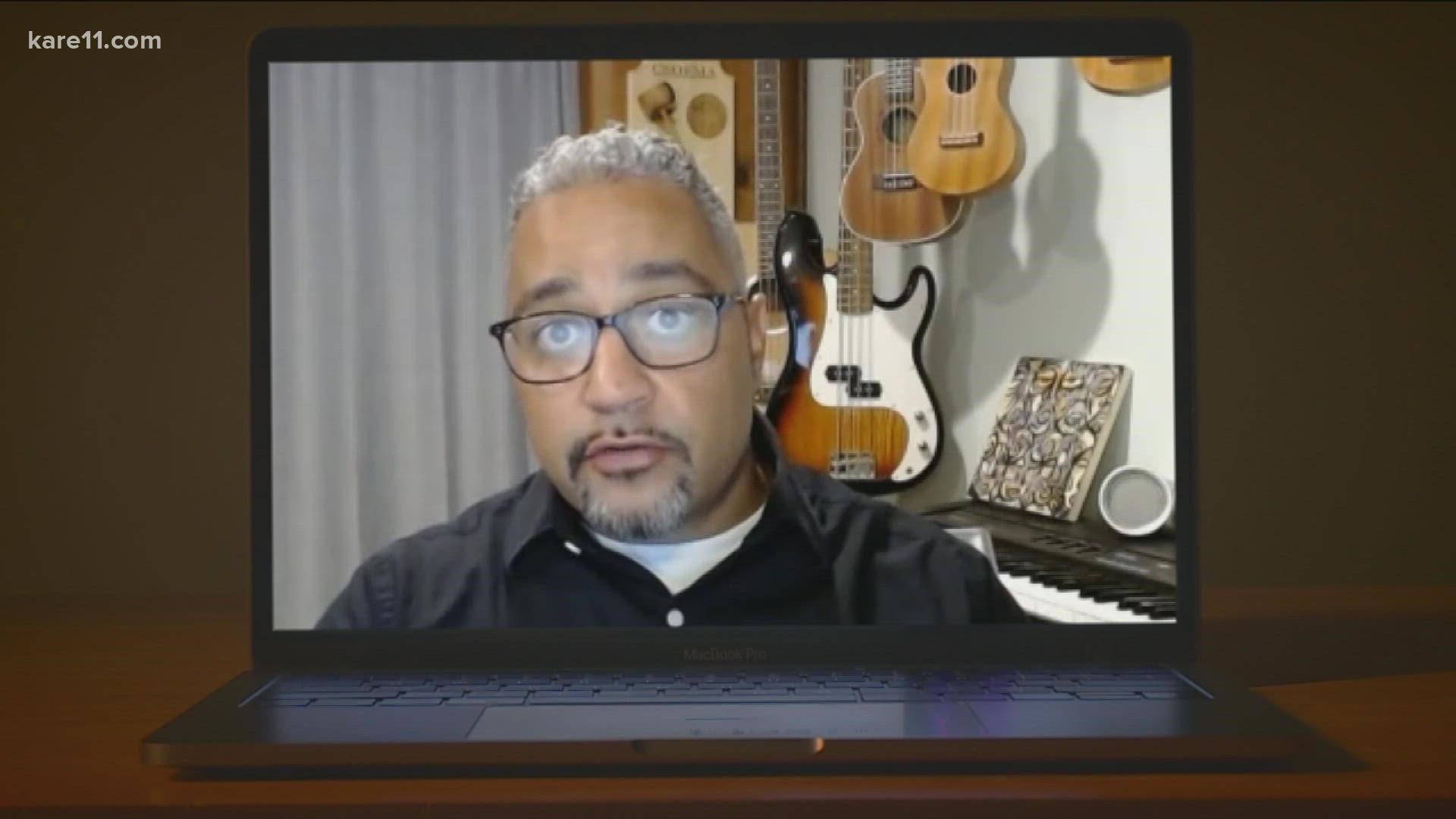ST PAUL, Minn. — There are a lot of conversations about COVID-19 right now, from rising cases to new variants to booster shots.
Dr. Zeke McKinney, the program director for HealthPartners’ Occupational and Environmental Medicine Residency Program said the information is changing weekly, sometimes daily.
Dr. McKinney is also overseeing HealthPartners' study on the AstraZeneca vaccine, which has not been authorized for use in the U.S. yet.
The first thing that is top of mind for Dr. McKinney is school districts already back in session or preparing to start back up with in-person learning.
"Right after Labor Day, after today school starts and we don’t have a statewide mask mandate and that’s a huge concern for me," he said.
“We saw in Florida they’ve already had 50,000 cases in schools already, which is really scary when you think about it and even in I think Florida, kid's cases of COVID are now outweighing adult cases so right now," Dr. McKinney said. He said he is worried about kids under 12 who can’t get vaccinated.
"Now we’re going to have this increased exposure with school started and really not a lot of mitigation efforts in place," Dr. McKinney said.
Dr. McKinney said he is also monitoring hospital capacity because he fears it could reach breaking points. Currently there are more than 600 people being treated for COVID in Minnesota. That's about where the state was in April and May.
“We’ve observed certainly outside of Minnesota, but it’s also starting to happen here where hospitals are essentially reaching their capacity to treat people and so they’re having to triage folks and send people to other institutions to get certain types of care," Dr. McKinney said.
Minnesota's 16 and older population is vaccinated currently at 72%, which is better than other states. But Dr. McKinney cautions about what we're observing in other states. He said ultimately most of the severe cases and deaths from COVID are from the unvaccinated, so this is relatively preventable.
Dr. McKinney said while we have encouraged people to do the right thing and get a vaccine, that hasn’t worked well.
“Along with that issue of capacity, we’re seeing a lot of frustration amongst health care clinicians because they feel like, ‘Gee people could’ve done more to prevent this now it’s really hard on us,’” he said.
Dr. McKinney is also concerned about the return to the office in person.
He said employers asking people to come back to work without mandatory mask mandates and having people return at this time is perplexing. He said a lot of people's jobs, as we have proved during the pandemic, can be done remotely.
"I know there’s interest in having in-person meetings and seeing people interact and having that face-to-face interaction, obviously interacting with people that way is important and it does help people in a way that maybe this type of meeting doesn’t exactly, but at the same time it’s not like this thing is over," Dr. McKinney said. He added it's not looking good. "I understand why May and June people felt like, ‘Oh you know, things are a bit better maybe we should do more sure,’ that day has come and gone."
Dr. McKinney said a few other things are on his mind: booster shots, what the global vaccination picture looks like, and supply chain issues.
Like any vaccine, effectiveness wanes over time. The question is now how to distribute new booster shots, and what will the capacity of people to go back to get their doses look like, Dr. McKinney asks.
He's also concerned about vaccination rates and vaccine equity for the rest of the world. Dr. McKinney compares COVID to the Spanish Flu of 1918, which lasted around two years. He said people need to start seeing this as a long-term pandemic.
"While we have better technology and better ways to treat, may not treat the disease but try to prevent the disease, we know more at the same time," Dr. McKinney said. "We also have this issue of people traveling all over the globe really fast which didn’t happen 100 years ago."
Dr. McKinney said we should also be watching for supply chain issue as COVID cases go up and down. Testing could be an issue, and so could access to vaccines.
Bottom line, Dr. McKinney said, individuals should do what they can to help to this pandemic.
"Look at your own civic duty," he said. "What do we owe each other living in a society? Why do we have to pay taxes? Why are there laws? Why can’t we just go around and do whatever we want? Because we do owe something to each other living here."

